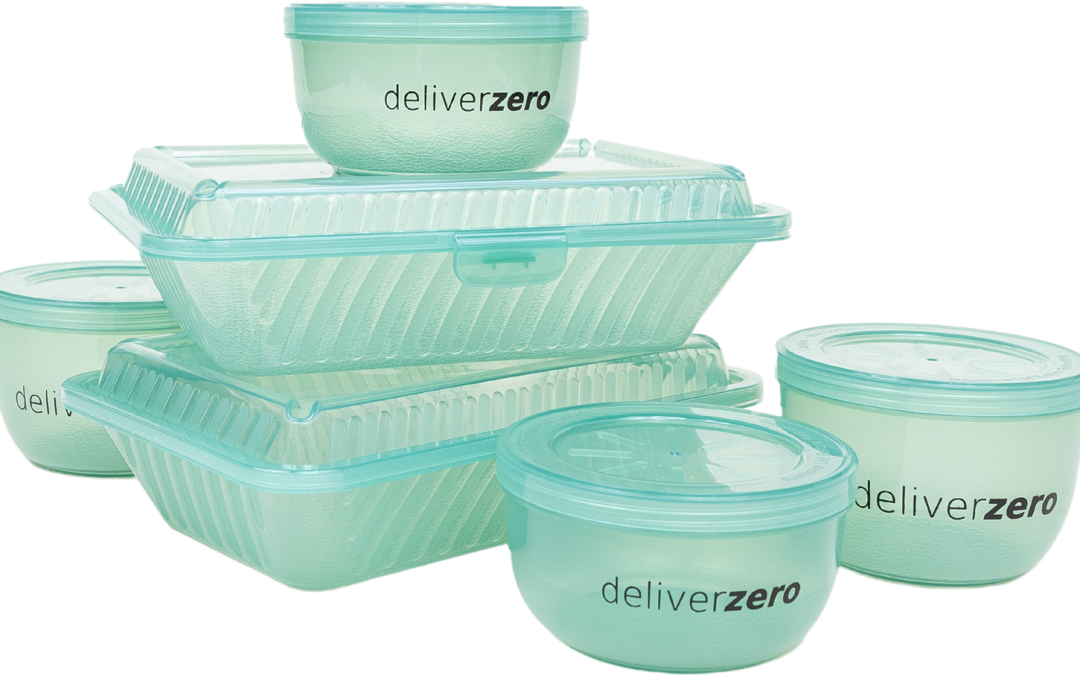
Lauren Sweeney, CEO of DeliverZero
Lauren Sweeney used to hear the same thing about DeliverZero, the reusable container company she leads, wherever she went in New York. Fabulous. Love it. Only one thing: Can I use it with other marketplaces than yours?
The answer used to be no. Which drove her crazy.
“It ate away at me that we couldn’t solve this problem through our own marketplace,” she said in an interview. “But we couldn’t. The phrase that came to me was we should pursue a neutral network of reusable packaging that lives across all points of sale. We should build that. But how do we do that?”
She’s figuring it out. In 2022, DeliverZero announced partnerships with DoorDash and Uber Eats, for select restaurants in several cities, including Boulder, Denver, Los Angeles, New York, and the Bay Area. The proposition is simple: for an extra 0.99, consumers can order a meal from a reusable container, which they need to return within 21 days, either in person or through a courier, either to a restaurant or a dishwashing facility, for a fee. It works. It saves countless pieces of packaging from landfills, and DeliverZero gets a commission from each transaction. Grubhub was the holdout. Until now.
“Integrating with Grubhub is an exciting win for us because now we can say we work with all of the third-party-delivery providers. That’s a game-changer,” she said.
So far, most people choose to return the container in person to a restaurant, 92 percent according to Sweeney. Not many use the courier pick-up option. But Sweeney is intrigued about something else that she has observed working in other industries.
“There’s a company called Returnmates that does pickups for companies like Rent the Runway and Mercari. We thought we could let our customers schedule pickups with those guys, and we can just go to their facility, pick the containers up and bring them back to be sanitized. Right now that part of our business is small but I think it could be future,” she said. “I get excited about the idea of identifying couriers who consistently return to the same place and offer customers the option to return packaging with those couriers. I think that mechanism will become normal. The fact that we use the customer’s phone number as their identifier in our system unlocks those possibilities, because they’re using their phone number across consumer behavior. So if we’re integrated with a partner that can do these pickups, it’s like, why not just check next time they place the order? Let them return containers and make it simple. We want to make this possible across all delivery apps.”
Simple, and possibly brilliant. But DeliverZero still has a sizable challenge in making this utopia a reality. It has to convince third-party delivery providers to go along. To get there, to be in a position to have negotiating leverage with providers, she will need to show that DeliverZero has a massive consumer population. Which means scale. DeliverZero has been growing. But Sweeney would like it to grow faster. She and her team are out there making their pitch. Whenever she needs a reminder of who her target customer is, she just looks in the mirror.
“I built this for people like me. I’m a mom. I work way too much. I don’t want to run errands, but I want to live more sustainably. So if I can make this work for someone like me, a busy person who cares about sustainability but also needs access to convenience, then it can scale,” she said.


